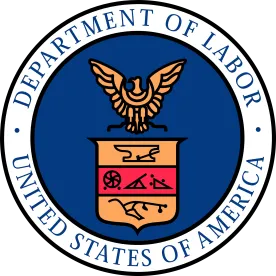On December 18, 2020, the Department of Labor published its expansion of the fiduciary interpretation and exemption for conflicted advice in the Federal Register. (Prohibited Transaction Exemption 2020-02, Improving Investment Advice for Workers and Retirees.) The exemption will be effective on February 16, 2021. The interpretation is effective immediately.
Since the effective date for the exemption is after the inauguration of the Biden administration, it is almost certain that the effective date will be further delayed. During that delay, we think it is likely the exemption will be revised or possibly withdrawn. But, it is just as likely that the expanded definition of fiduciary advice for rollover recommendations will be retained and possibly expanded. That could make life more difficult for broker-dealers, investment advisers and insurance companies. While these rules will affect all of those industries, this article focuses on the impact of the likely outcomes on broker-dealers.
To understand the impact of these changes, the starting point is in the prohibited transaction restrictions in ERISA and the Internal Revenue Code (Code). Without getting into the weeds, those rules prohibit fiduciary recommendations to plans, participants or IRA owners that result in increased compensation for the “fiduciary advisor.” That raises two issues. The first is the meaning of increased compensation and the second is what constitutes a fiduciary recommendation? We discuss both questions, and the answers, in the context of rollover recommendations.
In the preamble to the exemption, the DOL explains the conflict of interest (that is, the prohibited transaction):
A firm that recommends a rollover to a Retirement Investor can generally expect to earn transaction-based compensation such as commissions, or an ongoing advisory fee, from the IRA, but may or may not earn compensation if the assets remain in the Title I Plan. In light of potential conflicts of interest related to rollovers from Title I Plans to IRAs, Title I and the Code prohibit an investment advice fiduciary from receiving fees resulting from investment advice to Title I Plan participants to roll over assets from the plan to an IRA, unless an exemption applies.
In other words, the compensation that would be earned for investment services to the rollover IRA would be prohibited, absent an exemption, or exception, to the prohibited transaction restriction. Thus, the purpose of this exemption is to provide that exception, but only if the conditions in the exemption are satisfied. (While the conditions are beyond the scope of this article, one example is that the specific reasons why the rollover recommendation is in the best interest of the participant must be put in writing, and that writing must be given to the participant.) A point to remember, though, is that if there isn’t an exemption, the compensation resulting from a fiduciary rollover recommendation would be prohibited.
In response to the second question…when is a rollover recommendation fiduciary advice…the DOL dramatically changed its interpretation of the 5-part fiduciary test. That test includes as one prong a requirement that advice be rendered “on a regular basis.” In the past, most broker-dealers had relied on the “regular basis” part to say that a rollover recommendation was not fiduciary advice. That is, since rollover recommendations are usually made only once, a broker-dealer (or its representative) would not become a fiduciary because of the rollover recommendation. However, in its new interpretation the DOL appears to have found a way around that limitation. Here’s what they said:
However, advice to roll over plan assets can also occur as part of an ongoing relationship or an intended ongoing relationship that an individual enjoys with his or her investment advice provider. In circumstances in which the investment advice provider has been giving advice to the individual about investing in, purchasing, or selling securities or other financial instruments through tax-advantaged retirement vehicles subject to Title I or the Code, the advice to roll assets out of a Title I Plan is part of an ongoing advice relationship that satisfies the regular basis prong.
The DOL is, in effect, tacking the previous advice about how to invest, e.g., in an IRA, onto the recommendation to rollover, and saying that the two combined satisfy the regular basis test for fiduciary status. Certainly innovative, but not everyone is convinced that advice to an individual about investing in an IRA can be attached to a rollover recommendation to that same investor in his or her capacity as a participant. But the DOL has the upper hand here in the sense that it can seek to enforce the rules this way, and the broker-dealer will be arguing in court that the interpretation is incorrect.
In the preamble to the exemption, the DOL also said:
Similarly, advice to roll assets out of a Title I Plan into an IRA where the investment advice provider has not previously provided advice but will be regularly giving advice regarding the IRA in the course of a more lengthy financial relationship would be the start of an advice relationship that satisfies the regular basis prong. It is clear under Title I and the Code that advice to a Title I Plan includes advice to participants and beneficiaries in participant-directed individual account pension plans, so in these scenarios, there is advice to the Title I Plan— meaning the Plan participant or beneficiary—on a regular basis.
This is a continuation of the same reasoning as the first example, but in this case there is a connection in the sense that the money in the rollover IRA came from advice about the participant’s account in the plan.
Accepting, for the purposes of this article, that the DOL position will hold up, and acknowledging that it is an enforcement interpretation, it is already in effect. Since we suspect that most rollover recommendations will fall under the new fiduciary interpretation, that means that broker-dealers need the exemption in order to avoid prohibited transactions for compensation earned from the investments in the rollover IRAs. But, what if the Biden administration delays the effective date of the exemption or, for that matter, withdraws the exemption? That would mean that rollover recommendations would be stymied…because of the prohibited transaction rules and the lack of an exemption.
Fortunately, though, the DOL and IRS have agreed to extend a non-enforcement policy (FAB 2018-02) for one year…until December 20, 2021. That means that neither the DOL nor the IRS will enforce the prohibited transaction rules for fiduciary rollover recommendations until that date, so long as the Impartial Conduct Standards (ICS) are satisfied. The ICS are, in essence, the best interest standard of care, a limitation to reasonable compensation, and a prohibition on materially misleading statements.
However, that’s not the end of the story. While the DOL and IRS will not enforce those rules during 2021, ERISA can also be enforced by private rights of action. For example, a participant who received “bad” rollover advice could seek damages for breach of fiduciary duty by the broker-dealer or its representative. And, of course, the SEC and FINRA could enforce the best interest standard for rollover recommendations in Reg BI.
This article is a straightforward presentation of the rules and issues. There is more complexity than could be discussed here. This is an area where broker-dealers should obtain expert advice from experienced professionals.





 />i
/>i

